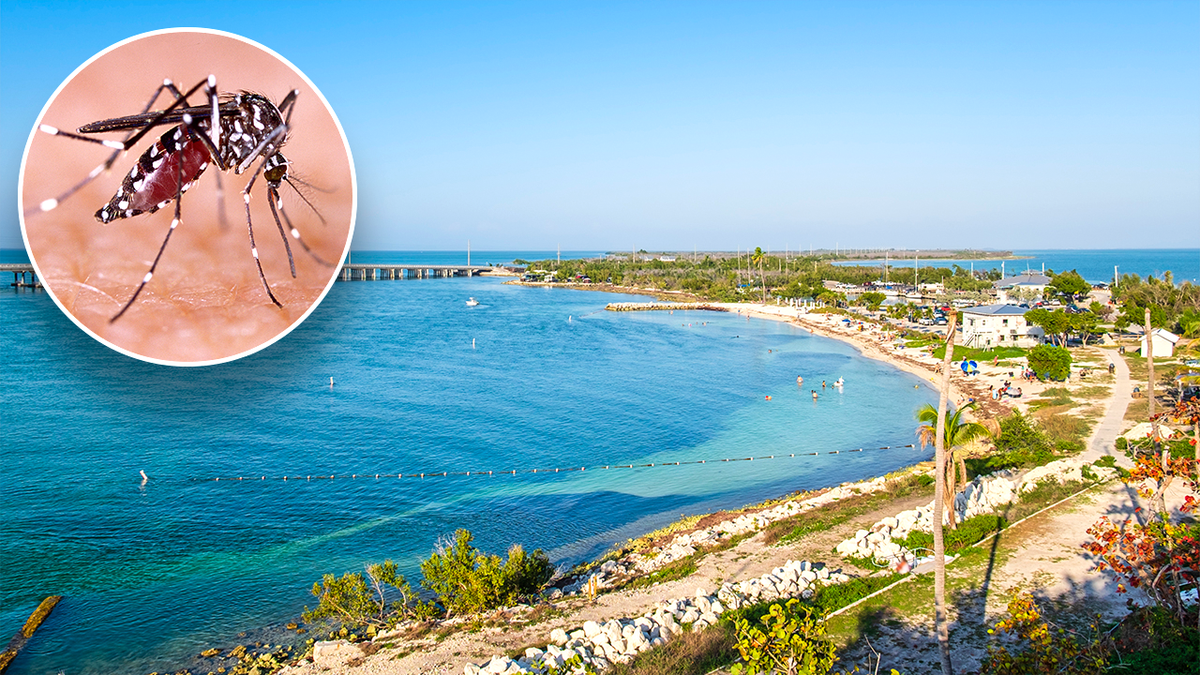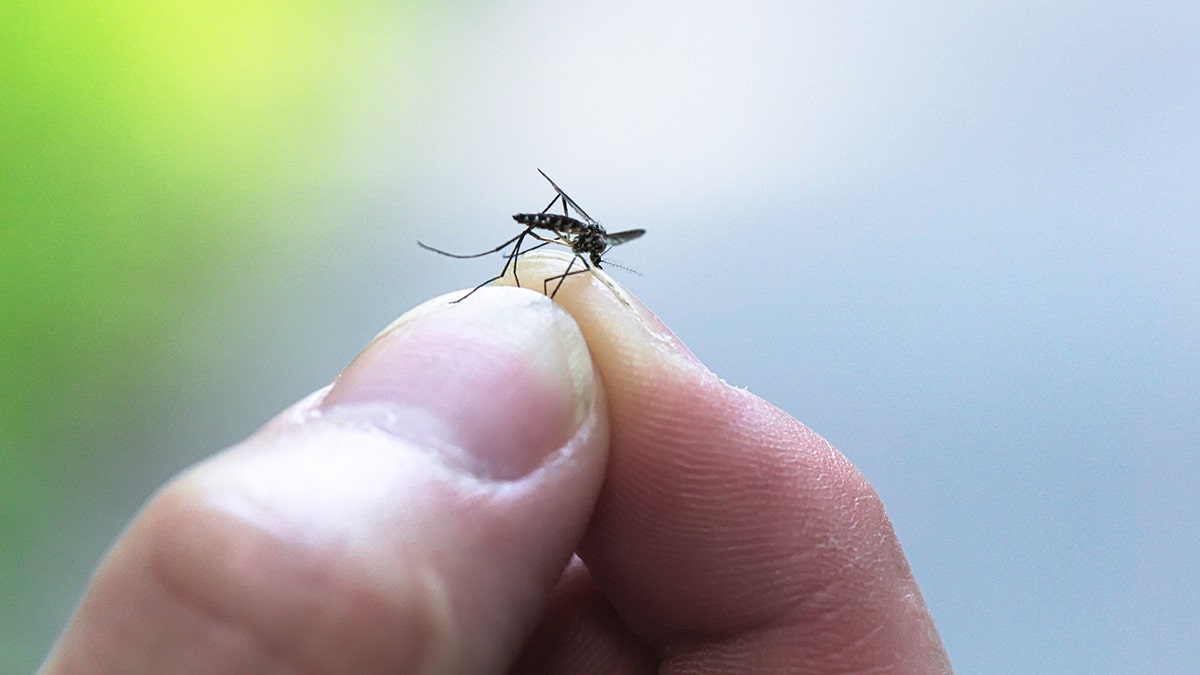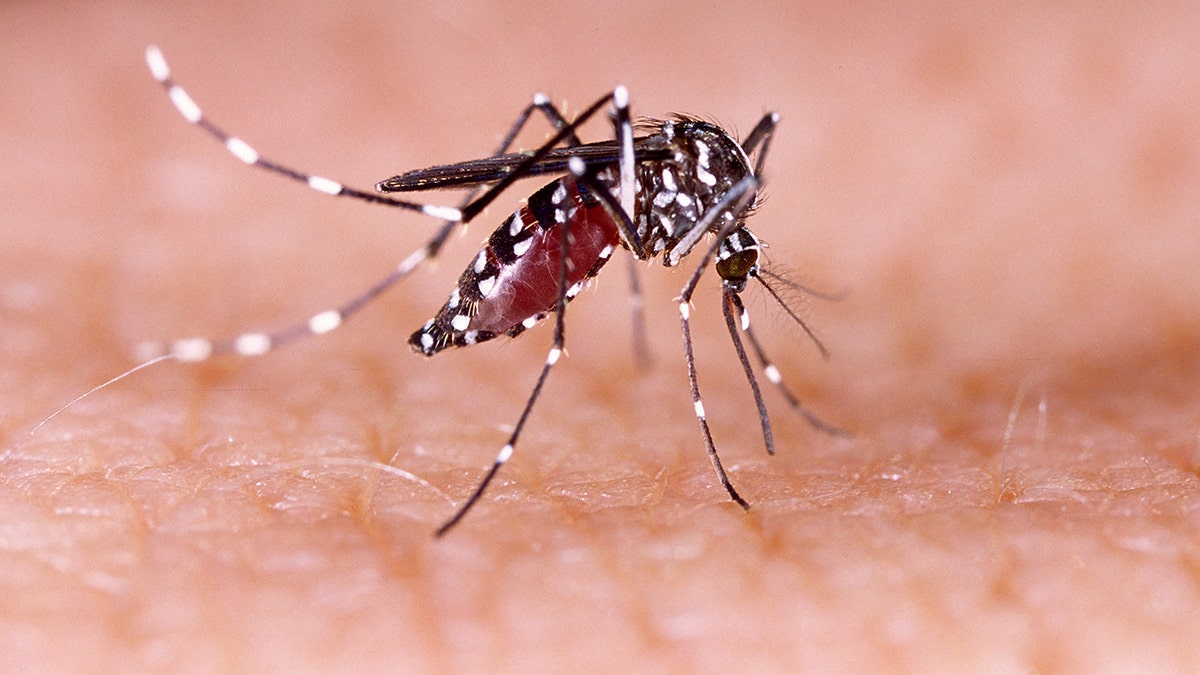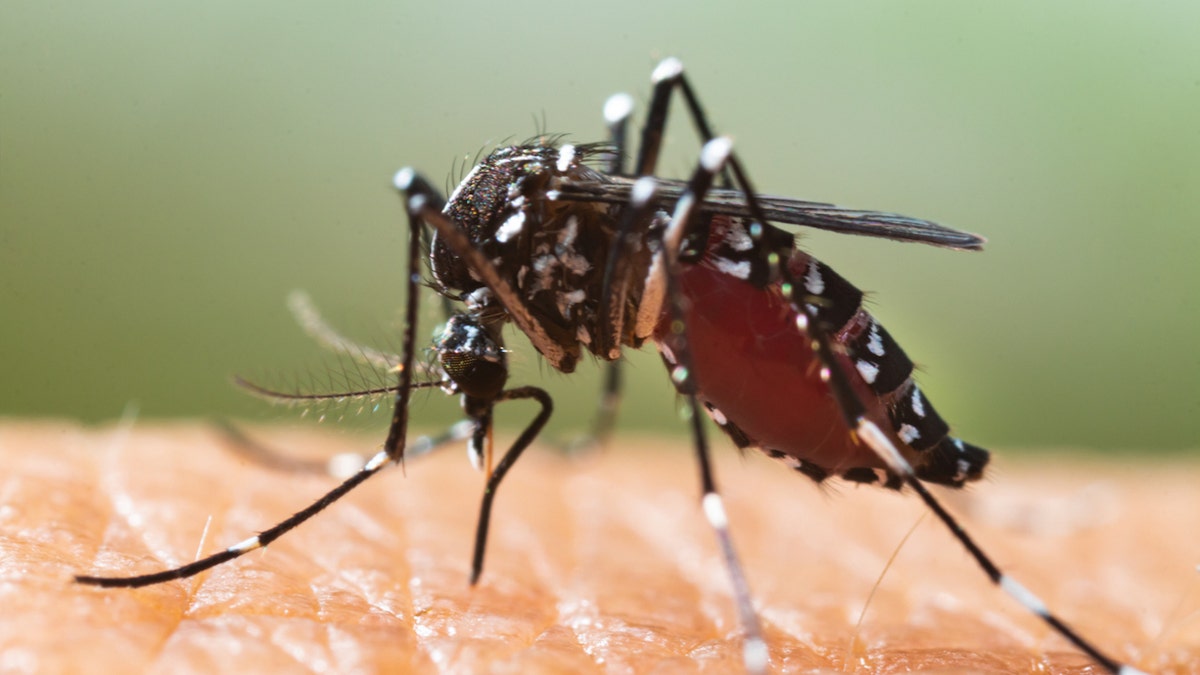Florida Keys confirms two cases of locally acquired dengue fever from mosquitoes
Two cases of locally acquired dengue fever – a mosquito-borne illness – have been confirmed in the Florida Keys, the Florida Department of Health in Monroe County announced earlier this week.
The Monroe Department of Health and the Florida Keys Mosquito Control District (FKMCD) are upping their surveillance and prevention efforts as cases arise, the notice said.
These measures include door-to-door mosquito inspections in the area, enhanced trapping and monitoring, and aerial and truck-mounted larvicide and adulticide treatments.
TIGER MOSQUITOES BLAMED FOR SPREAD OF DENGUE FEVER: ‘MOST INVASIVE SPECIES’
Dengue fever can cause flu-like symptoms that include severe muscle aches, joint pain, fever and rashes, according to the alert.
Dengue fever is not contagious and can only be spread by an infected mosquito. Symptoms can appear within 14 days of being bitten.

The Florida Keys has confirmed two locally acquired cases of mosquito-borne dengue fever. (iStock)
DOH-Monroe reminded residents to take basic precautions against mosquito bites, including wearing bug repellent on skin and clothing, keeping screens on windows, using air conditioning in the home, and keeping doors and windows closed when possible.
UNDERSTANDING THE SEVERITY OF THE MOSQUITO-BORNE DISEASE DENGUE
FKMCD also released a statement encouraging property owners to prevent mosquitoes from breeding by eliminating standing water.
This can be done by turning over and removing empty pots, buckets, trash cans, recycling bins, pet bowls and children’s toys that collect water.

Wearing long sleeves and pants and applying bug spray can help prevent mosquito bites. (iStock)
The group also recommended checking tarps on boats or other equipment, as well as gutters, to make sure they’re clear of debris.
Property owners are also encouraged to flush fresh water through hanging plants and bird baths.
Fox News Digital reached out to the Florida health department for additional comment.
“There are currently no vaccines in the United States against mosquito-transmitted viruses, nor are there many treatments.”
“Personal protection remains folks’ best bet to stop the spread of mosquito-borne diseases, and vector-borne diseases more broadly,” Joe Fauver, PhD, epidemiologist at the University of Nebraska Medical Center, told Fox News Digital.
“There are currently no vaccines in the United States against mosquito-transmitted viruses, nor are there many treatments.”
Highest on record
Just before the local Floridian outbreak, the U.S. Centers for Disease Control and Prevention (CDC) issued an official health advisory for an increased risk of dengue fever infection.
MYSTERIOUS ILLNESS TRIGGERED BY TICK BITE COULD AFFECT THOUSANDS, YET MANY DOCTORS ARE UNAWARE OF IT
The agency reported on June 25 that the global incidence of dengue in 2024 is the highest on record.
The World Health Organization (WHO) recorded more than 7.6 million global dengue fever infections in the first four months of 2024.

Global health agencies have reported high numbers of dengue fever infections in 2024. (iStock)
The CDC advised health care providers to be on the lookout for dengue symptoms and to order appropriate diagnostic tests.
During an appearance on FOX Business’ “Varney & Co.” on Tuesday, Johns Hopkins School of Medicine professor Dr. Marty Makary said the infection is considered “dangerous,” but not to the level of “another pandemic.”
CDC WARNS OF MOSQUITO-DRIVEN VIRUS AS CASES SPIKE
“It’s endemic in many tropical and warm countries,” he said.
Dengue fever, which has been reported in about 38 U.S. states, can come with a characteristic eye pain and rash, according to the doctor.

Florida officials say the yellow fever mosquito (aedes aegypti) is to blame for dengue transmission. (iStock)
Although there are tests available, Makary confirmed there is no known treatment for dengue.
“It’s a good reminder to try to do what you can to reduce mosquito bites, especially in the southern United States, where this is more common,” he advised.
‘Invasive’ and ‘aggressive’ mosquitoes
While Florida authorities have identified the yellow fever (Aedes aegypti) mosquito as the culprit in spreading dengue, the European Centre for Disease Prevention and Control (ECDC) previously warned that tiger mosquitoes (Aedes albopictus) can also carry the infection.
CLICK HERE TO SIGN UP FOR OUR HEALTH NEWSLETTER
Elitza Theel, PhD, director of Mayo Clinic Laboratories in Minnesota, confirmed that tiger mosquitoes are a “known vector” for dengue fever and can transmit the virus to individuals who have not previously been infected.
“This mosquito species is concerning for a number of reasons, including that it is considered the most invasive species in the world,” she told Fox News Digital last month.
For more Health articles, visit www.foxnews/health
The mosquito species is moving further and further north globally as temperatures grow warmer, the expert said.
“Tiger mosquitoes are also rather aggressive, biting both humans and animals at any time of the day, rather than just at dawn or dusk, which is typical of other mosquito species,” Theel warned.

Aedes albopictus, the “tiger” mosquito, can survive in cooler climates, according to experts. (iStock)
Fauver warned that the tiger mosquito can spread many “problematic arboviruses (arthropod-borne virueses),” including dengue, Zika and chikungunya.
“The mosquito is a generalist feeder and will gladly take bloodmeals from humans, potentially exposing them to these arboviruses,” he told Fox News Digital.
CLICK HERE TO GET THE FOX NEWS APP
“Aedes albopictus is an invasive species and is currently undergoing rapid range expansion and establishing populations in areas it previously wasn’t, including Europe and the U.S.”
Health officials have claimed that climate change is one of the factors contributing to the spread of these insects.
Fox News Digital’s Melissa Rudy contributed to this report.




